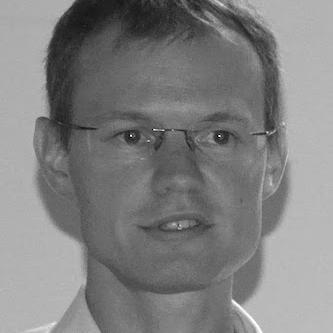
Acronym: eVTOLUTION
Title: EVTOL MUlti-fideliTy hybrid desIgn and Optimization for low Noise and high aerodynamic performance.
Call: HORIZON-CL5-2023-D5-01, (Clean and competitive solutions for all transport modes)
EU nr: 101138209
Period: 48 months: starts on 1/1/2024-31/12/2027
Budget: total: 3,520,000.00 €; VUB : 28,000.00 €
Contact: Prof. Dr. Ir. Tim De Troyer; https://brite-research.be/
At ERIS we were happy to meet Tim and asked him 2 questions:
What is eVTOLUTION about?
Tim: “This project addresses the design and optimization of electric Vertical Take-Off and Landing (eVTOL) aircraft developed for Urban Air Mobility (UAM) applications. These eVTOL aircraft are considered a promising option to reduce urban traffic congestion and pollutant emissions.
“A specific challenge for novel eVTOL aircraft concepts is the complexity of the aerodynamic and acoustic interactions between the tightly integrated lift-thrust system and the airframe. The resulting flow distortion causes steady and unsteady loads on the rotor blades and airframe elements. This in turn degrades the overall aerodynamic performance and generates noise.
The partners of this consortium – including eVTOL aircraft developers – acknowledge the insufficient maturity of specialized simulation tools and methods that are currently used for the design and optimization of aircraft.
Therefore, this project intends to develop a novel multi-fidelity hybrid design and optimization framework that can handle novel aircraft architectures. The framework will boost efficiency, interoperability, and adaptivity, and be later be disseminated toward the full aircraft industry.“
Why is eVTOLUTION important for VUB?
Tim: “By its nature and objectives, eVTOLUTION will require a tight interlacing of many disciplines and methods: aircraft design and analysis, steady and unsteady aerodynamics, aeroacoustics, flow and noise passive and active control, analytical modeling, a complete range of CFD and acoustic simulation techniques from low- to high-fidelity, experimental testing (including advanced flow diagnostics, acoustic measurements, and source identification), high-performance computing, machine learning, psychoacoustics, and sound quality, citizen science, societal acceptance, uncertainty quantification, optimization methods, flight dynamics, and control, and project management. It is exciting to be part of such an ambitious underaking. Luckily, the consortium brings together a great many experts, so I am perfectly confident that we will achieve all the objectives.
At VUB in general, and for FLOW and BRITE in particular, we want to support the transition to a more sustainable future. I believe electrification will play an important role in all modes of transport, also for flight. However, for classical short and medium haul aircraft, the battery densities are still way too low to make flight economically viable in the near term. What I do expect to see already in the next decade, are electric VTOL aircraft for shorter flights, in the context of urban air mobility.
However, many challenges remain, e.g. in terms of certification, integration in the airspace, but also integration in the urban landscape. Noise emissions are a particular concern. Ultimately, the adoption of UAM technologies and services will depend on social acceptance. To that end, VUB will actively engage society in the contex of eVTOLUTION. Citizens from Brussels and beyond will be invited to collect noise signals to map the urban background noise, and to communicate the subjective assessment of the eVTOL sound signals to be synthesized by the partners. Who knows Brussels can become one of the first capital cities to host UAM services? “
AIM
This project supports the digital transformation of aircraft design by developing new multi-disciplinary and multi-fidelity simulation tools that will enable novel aircraft architectures with improved aerodynamics and reduced noise emissions. One common issue for most novel aircraft concepts is indeed the complexity of the aerodynamic and acoustic interactions between the lift-thrust systems and the airframe. eVTOLUTION is designed as a low-to-mid-TRL enabler project meant to develop the knowledge, data, tools, and methods that are necessary to understand, model, and optimize aerodynamic and aeroacoustics installation effects. The main objective of the project is to implement and demonstrate a novel design and optimization framework, built upon three pillars: (i) exploit the strengths of low-, mid-, and high-fidelity simulation methods at each phase of the design; (ii) accelerate the optimizations while preserving robustness thanks to data-driven surrogate models combined with physical models; and (iii) further consolidate the accuracy and robustness of the design and optimization using advanced experimental/numerical cross-validation and training methodologies.
METHODOLOGY
The realization of these objectives will be achieved through design exercises, defined by the consortium under the guidance of its aircraft manufacturers. The analysis of the design exercises will permit quantifying the gains achieved in terms of design cycle time, prediction accuracy, optimization robustness, the efficiency of the noise-mitigation technologies, and eventually the acceleration of the certification process.
IMPACT
This project addresses more specifically the design issues of electric Vertical Take-Off and Landing aircraft developed for Urban Air Mobility, but the innovative design/optimization framework that is proposed in this project is equally applicable to other novel aircraft architectures, such as those based on Distributed Electric Propulsion, Boundary Layer Ingestion, or open rotors
